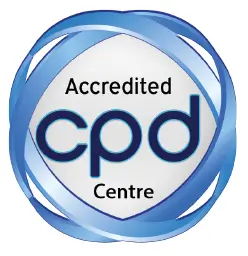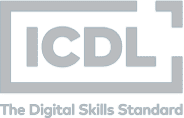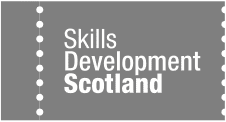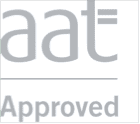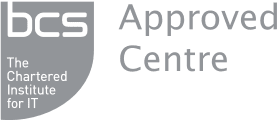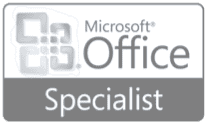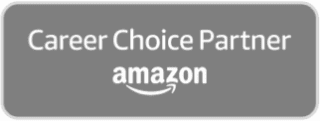C# is a programming language that was created by Microsoft in 2000 and it is considered to be a relatively simple to learn language.
This C# Programming course is for those who already have programming experience. If you wish to gain a Microsoft Certified Professional level qualification, this course will teach you all you need to take and pass the Microsoft exam 70-483.
It will take around 40 hours to work through and you are able to set the pace at which you progress through the course. You access the course online anytime, anywhere.
There are four sessions in this course altogether and you will also have access to test prep questions that meet all of the exam objectives, enabling you to be as confident as possible before you take the official examination.
Session 1
Section A: Introduction, Course Opener, How to Study for This Exam
Section B: Asynchronous Processing, Run Tasks in Parallel, Use Parallel For, Use Plinq, Use Tasks, Continuation Tasks, Spawn Threads with ThreadPool, Unblock the UI, Use Async and Await Keywords, Use Concurrent Collections.
Section C: Manage Multithreading, Synchronize Resources, Implement Locking, Cancel a Long-Running Task, Implement Thread-Safe Methods.
Section D: Implement Program Flow, Collections and Array Items, Switch Statements, If-Then and Operators, Evaluate Expressions.
Section E: Events and Callbacks, Event Handlers, Event Subscriptions, Create Events with Delegate Types, Create Delegates, Lambda Expressions and Anonymous Methods
Section F: Implement Exception Handling, Handle Exception Types, Catch Typed vs. Base Exceptions, Implement Try-Catch-Finally, Throw Exceptions, Throw vs. Rethrow, Custom Exceptions, Session 1 Recap.
Session 2
Section A: Create Types, Create Value Types, Create Reference Types, Create Generic Types, Create Constructors, Create Static Variables, Create Extension Methods, Use Indexed Properties, Create Overloaded Methods, Create Overridden Methods.
Section B: Consume Types, Convert with Box or Unbox, Cast and Convert Types, Dynamic Types.
Section C: Enforce Encapsulation, Enforce with Properties and Accessors, Enforce with Interfaces.
Section D: Create Class Hierarchies, Design and Implement an Interface, Inherit from a Base Class, Use the IComparable Interface, Use the IEnumerable Interface, Other Interfaces.
Section E: Runtime Types with Reflection, Create and Apply Attributes, Read Attributes, CodeDom Expressions, Lambda
Expressions, System.Reflection Namespace Types.
Section F: Manage the Object Life Cycle, Manage Unmanaged Resources, Implement IDisposable, Manage iDisposable, Manage Finalization, Garbage Collection.
Section G: Manipulate Strings, Use StringBuilder, Use StringWriter and StringReader, Search Strings, Enumerate String Methods, Format Strings, Session 2 Recap.
Session 3
Section A: Validate Application Input, Validate JSON Data, Data Collection Types, Manage Data Integrity, Validate with Regular Expressions, Validate with Parse and TryParse, Use the Convert Function, Write Regular Expessions.
Section B: Symmetric and Asymmetric Encryption, Encryption Algorithms, Manage and Create Certificates, Implement Key
Management, Implement the System.Security Namespace, Hashing Data, Encrypt StreamsSection C: Manage Assemblies,
Version Assemblies, Sign Assemblies Using Strong Names, Implement Side-by-Side Hosting, Global Assembly Caches,
Create a WinMD Assembly.
Section D: Debug an Application, Create and Manage Compiler Directives, Choose Appropriate Build Types, Manage Database Files and SymbolsSection E: Implement Diagnostics, Implement Logging and Tracing, Profiling Applications, Performance Counters, Write to the Event Log, Session 3 Recap.
Session 4
Section A: Perform I/O Operations, Read and Write Files, Use the System, Net Namespace, Implement Asynchronous I/O Operations.
Section B: Consume Data, Retrieve Data from a Database, Update Data in a Database, Consume JSON Data, Consume XML Data, Retrieve Data Through Web Services.
Section C: Use LINQ, Use Operators to Query Data, Create Method-Based LINQ Queries, Use Comprehension Syntax, Use
Anonymous Types, Force Query Execution, Use LINQ to XML to Read Data, Use LINQ to XML for Creation.
Section D: Serialize and Deserialize Data, Use Binary Serialization, Use XML Serializer, Use JSON Serializer, Use Data Contract Serializer.
Section E: Data Collections, Use Dictionaries, Use Arrays, Use Lists, Use Sets, Use Queues, Choose a Collection Type, Initialize a Collection, Add and Remove Items from a Collection, Use Typed vs. Non-Typed Collections, Implement Custom Collections, Implement Collection Interfaces, Session 4 Recap.
Section F: Course Recap, Final Test Tips, Conclusion.
Call us free on 1800 532632 to discuss our programming training in more detail.
* Please note vendor specific exams may need to be organised separately.
